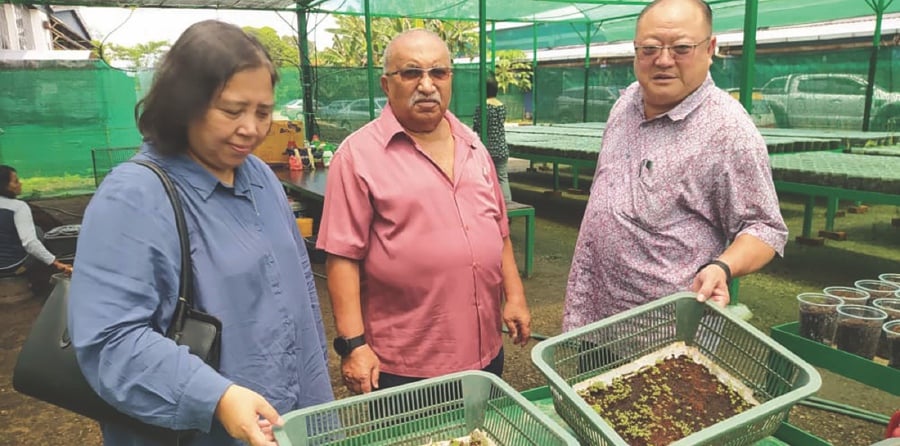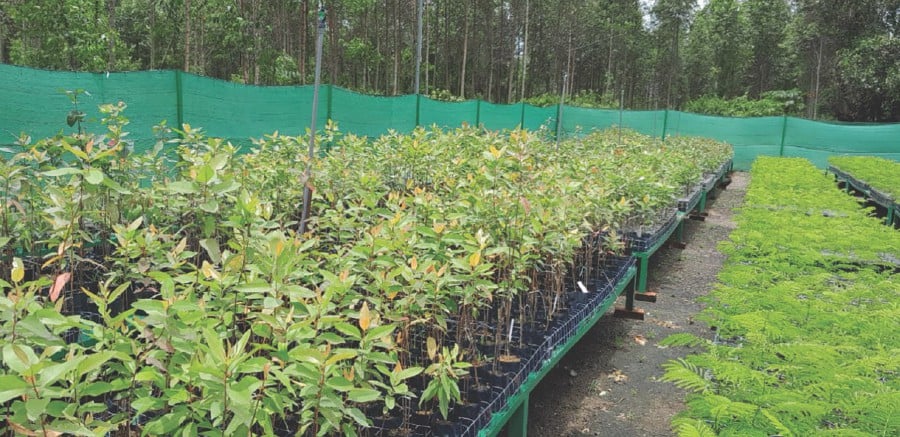The community farming project involving the cultivation of eucalyptus has started in Batu Kikir, Negri Sembilan.
By Nor Ain Mohamed Radhi – March 28, 2024
Source: The New Straits Times
The impact of raw material shortage presents a significant obstacle for the country’s timber industry, particularly the downstream sector and its ability to tap into new markets.
The Malaysian Panel-Products Manufacturers’ Association (MPMA) said Malaysia has the potential to produce high-value timber products such as marine plywood and container flooring.
To address the shortage of raw materials, strategic partnerships have been forged to ensure the industry’s adaptability and resilience.
“The shortage of raw materials, especially timber from natural forest sources, is expected to have a profound impact on our ability to tap into new markets,” its chairman Datuk Wira Sheikh Othman Rahman told the New Straits Times.
He said the scarcity of raw materials has hindered factory production, affecting key products such as plywood, medium-density fibreboard and particleboard.
He said plywood ranked as the second largest timber product being exported, after wooden furniture.
Sheikh Othman added Malaysia exports approximately 3.6 million cubic metres of such materials yearly.
“Collaborations with entities like the Malaysian Timber Industry Board (MTIB) and other agencies provide opportunities for the industry players to explore new markets and promote sustainable practices.

“Moreover, things like carbon credit and carbon banks are being utilised to raise awareness and promote sustainability within the industry.
“These efforts align with the MPMA’s commitment to exploring new raw material sources to prevent production disruptions and ensure long-term sustainability,” he said.
Sheikh Othman added the industry was also looking into alternative raw materials such as oil palm trunks, coconut trunks and rubberwood among others.
“We have to look for alternative raw materials to ensure sufficient supply for the industry.”
He said in 2019, MPMA signed a Memorandum of Understanding (MOU) with Forest Research Institute Malaysia (FRIM) and Plus Intervest in the collaboration of producing tissue culture eucalyptus seedlings.
Eucalyptus is known for having good potential for plywood production and presents a promising solution to the industry’s raw material scarcity issues.
The community farming project involving the cultivation of eucalyptus started in Batu Kikir, Negri Sembilan.
For a start, the project involved 78 villagers over 101.2ha of land.
He said for every 0.4hq of land, 600 eucalyptus trees can be planted, and it takes six years for the plants to yield results.
“This innovative endeavour aims to secure a sustainable and reliable source of raw materials for the timber industry.
“Community members involved in eucalyptus farming stand to benefit economically through employment opportunities, income generation, and enhanced livelihoods.
“By empowering local communities to actively participate in eucalyptus cultivation, the project contributes to the long-term viability and resilience of the Malaysian timber industry while promoting environmental stewardship and socio-economic development at the grassroots level.”
Exports of timber and timber products fell by 13.2 per cent to RM21.9 billion in 2023 compared with RM25.21 billion in 2022.
The major timber-based products exported from Malaysia were wooden furniture, plywood, sawn timber, fibreboard and Builders’ Joinery & Carpentry (BJC).
Among the top export destinations include the United States, Japan, and India.
MPMA was established in 1965 with a mission to represent members’ interests in the Malaysian plywood and panel industry.
Its main activities include promoting the export of plywood and panel products, working closely with government departments in the pursuit of national policies about wood-based industries and engagements with industry stakeholders.


